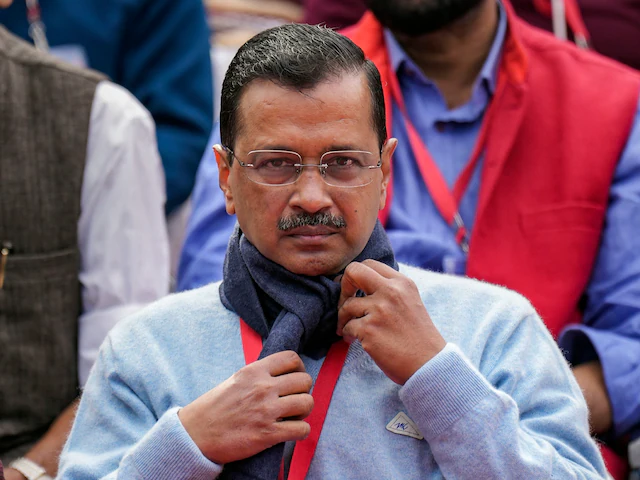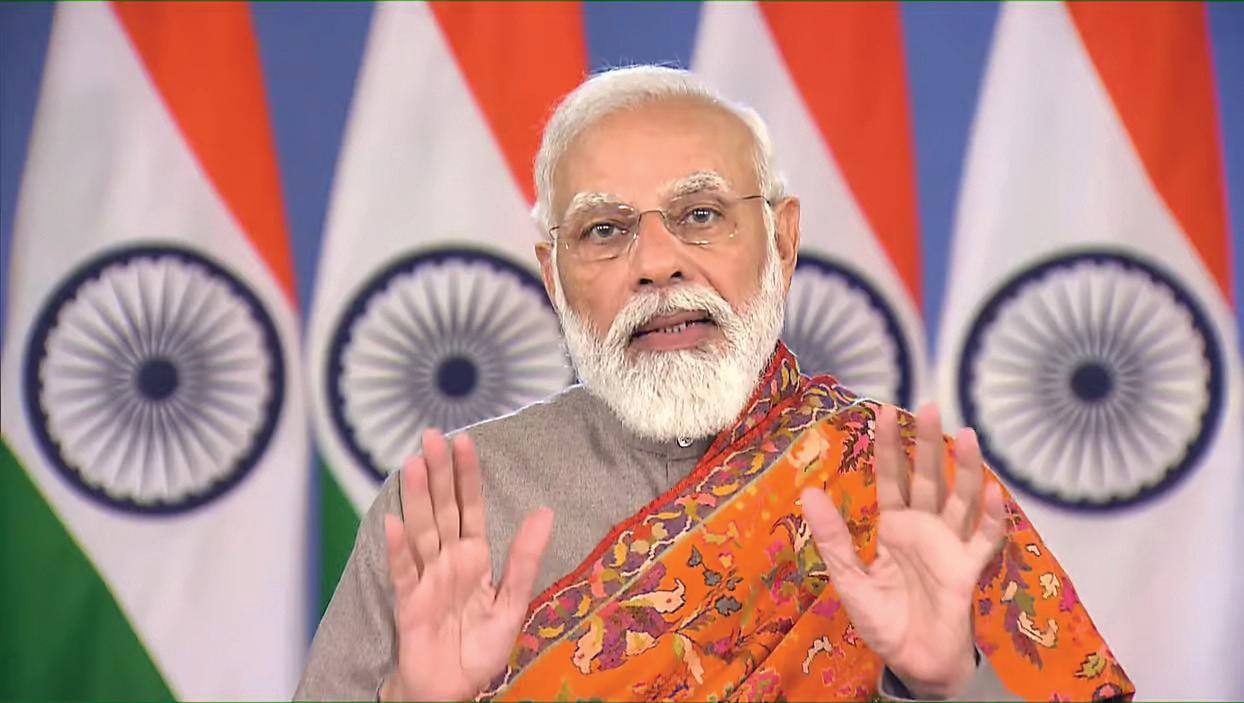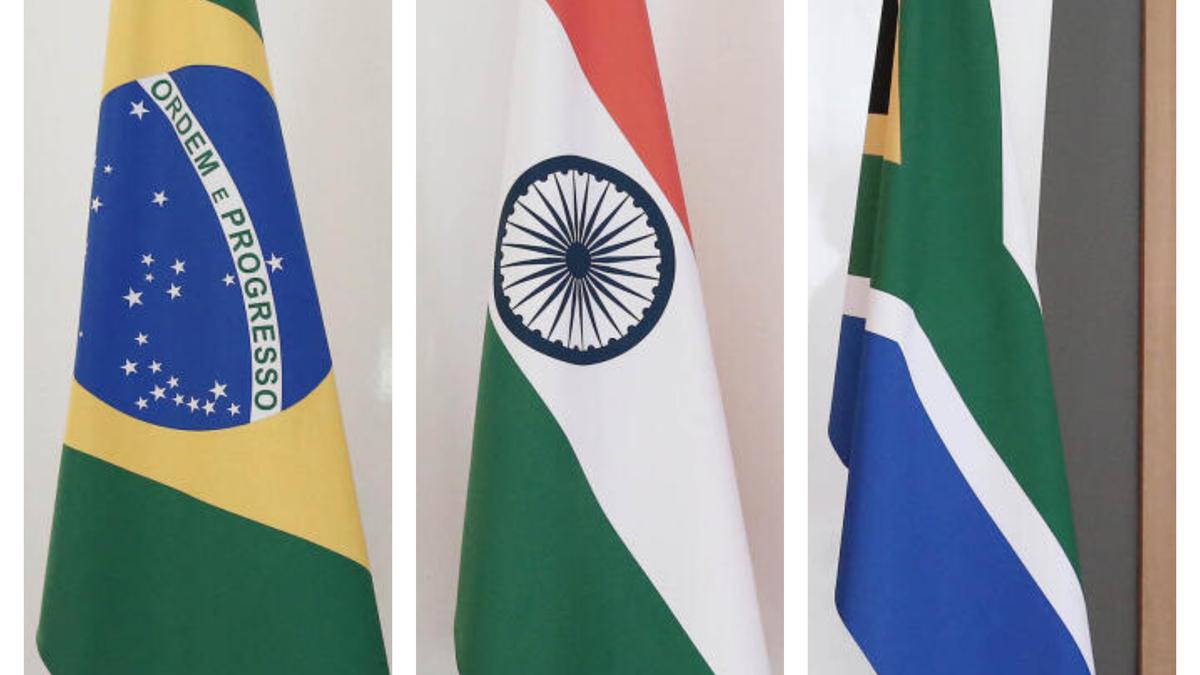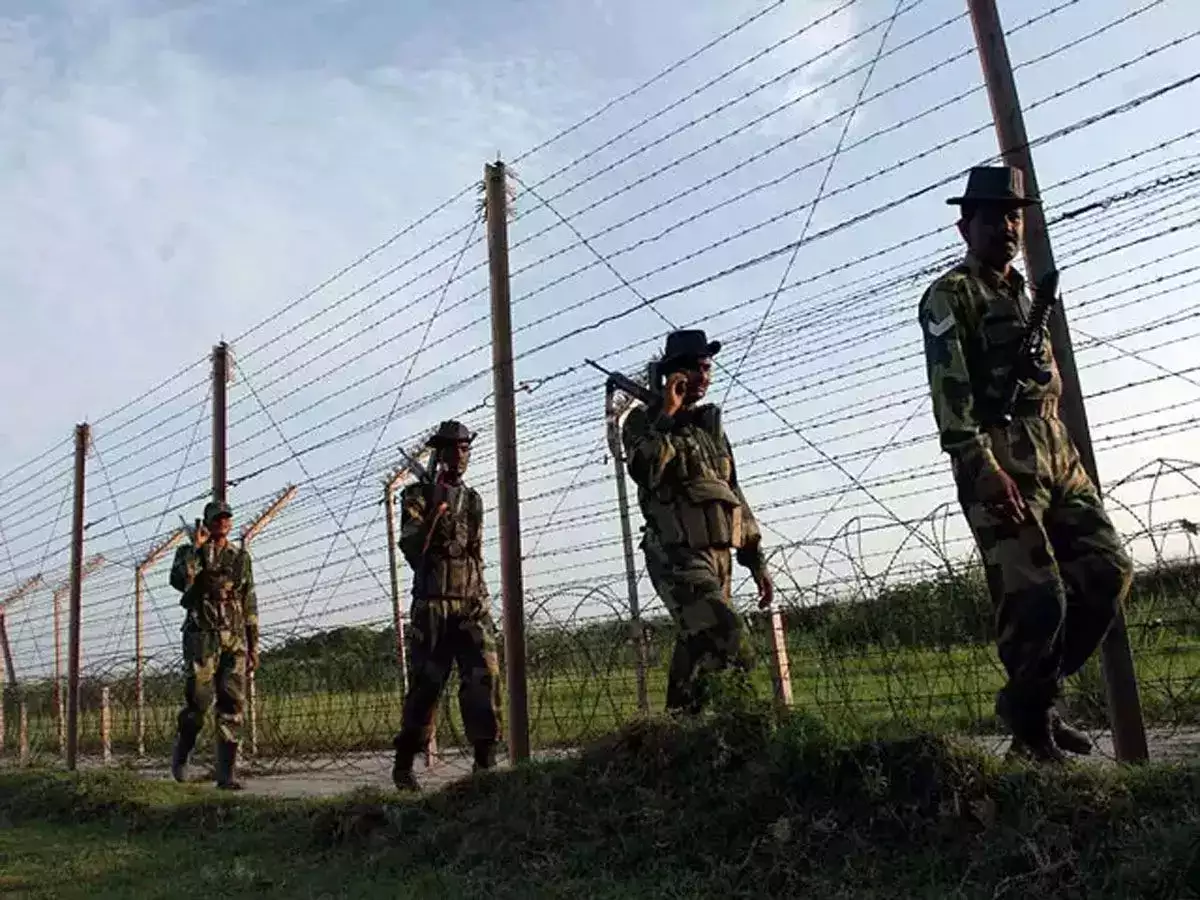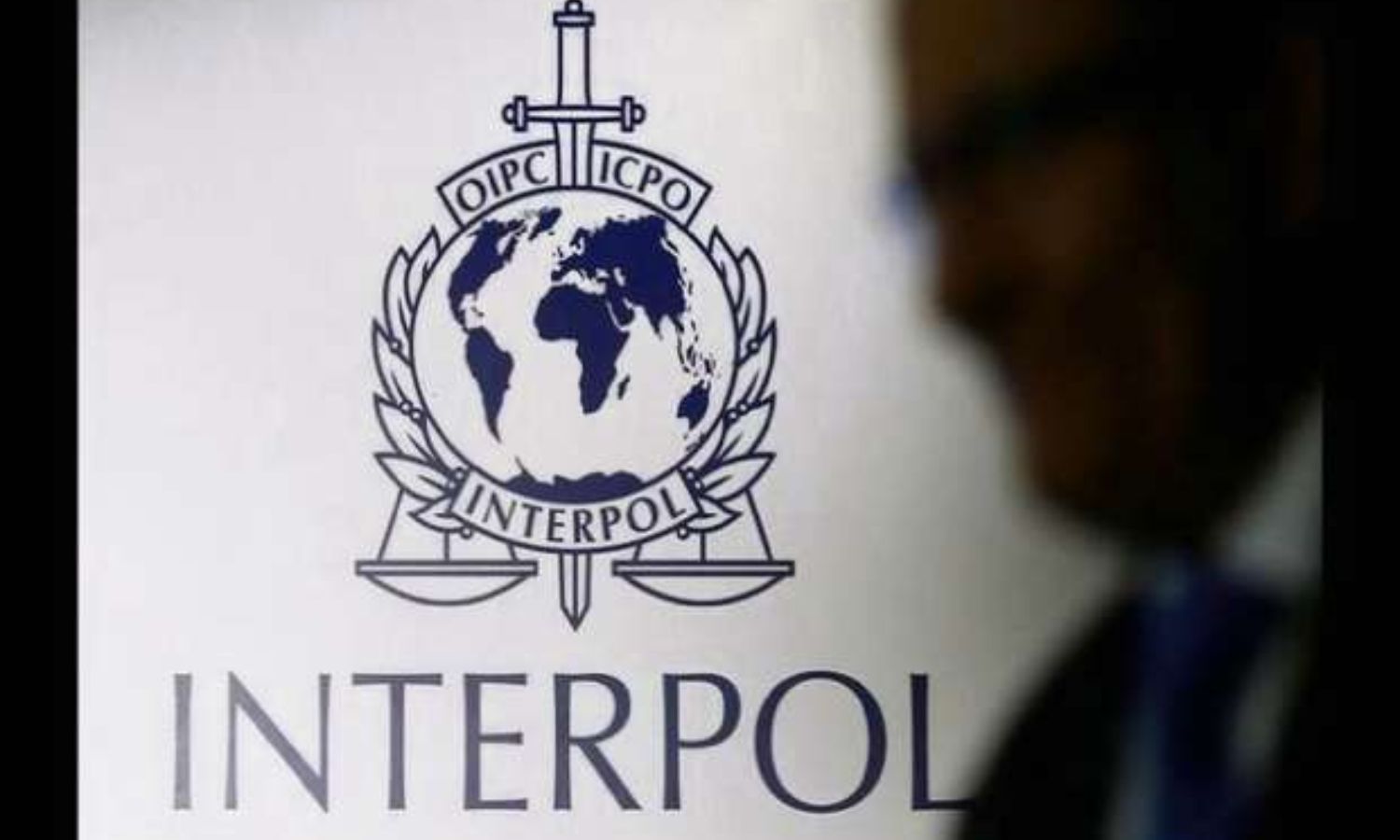It is hitting the headlines all over that the Delhi Police Special Cell has arrested Bhim Sena chief Nawab Satpal Tanwar for allegedly announcing a bounty of Rs 1 crore on Nupur Sharma in a Facebook video and also made threatening remarks. The Delhi Police said that Tanwar had allegedly issued death threats and announced bounties earlier too. Within no time he gets bail as we see in similar other such cases!
It must be asked: How can Centre take all this just lying down so quietly? Why is it becoming so common to issue death threats and announcement of bounty on the head or throat of some one? Why is bail given so quickly and so easily to those who issue such dastardly threats?
Needless to say, our penal laws merit prompt correction in this regard and law makers who are reviewing penal laws must immediately deliberate, discuss and debate on this also so that the growing reprehensible tendency of issuing death threats or threats to maim some person is promptly reigned in!
Of course, we are not living in a Talibani India! We are a secular country and no one has the unfettered right to issue such death threats or threat to cut tongue or hands or legs! Why can’t Centre make such strict laws which mandates at least 14 years imprisonment to all those who dare to issue such death threats or threats to maim someone?
Who is Nupur Sharma? She is just about 37 years old who is a graduate in economics from Delhi University’s Hindu College and LLB from the Delhi University’s Faculty of Law. She also has a Master’s degree in law from the London School of Economics. She started her stint in politics as a student leader and, in 2008, went on to win the post of Delhi University Students’ Union president. It was a time when the Congress’s student wing, the National Students’ Union of India (NSUI), had a strong presence on campuses. So while Nupur managed to get the president’s post, all other posts were won by the NSUI. The most high-profile of her electoral contests, however, remains the 2015 Delhi Assembly election, when she decided to pick up the gauntlet and take on none other than the Aam Aadmi Party (AAP) convenor Arvind Kejriwal from the New Delhi seat. She however lost by 31,583 votes but gave tense moments to Kejriwal.
Many of us know very well that Nupur Sharma who has been a very familiar and prominent face of the party’s youth wing, the Bharatiya Janata Yuva Morcha, has also held several positions in the party such as national executive committee member of the youth wing and member of the Delhi state executive committee. In 2017, she was appointed Delhi BJP’s spokesperson when the then Delhi state unit chief Manoj Tiwari formed his team. In September 2020, when JP Nadda set up his team, Nupur Sharma was then picked as a national spokesperson.
It is said that Nupur Sharma made some controversial comments about Prophet Mohammad who is the founder of Islam. It merits no reiteration that no sane person can ever endorse anything wrong said about such a prominent personality whom Muslims hold in the highest esteem. She spoke about Prophet Mohammad marrying with a very small girl.
We don’t even get to read as to what exactly she said. She later apologized also humbly for the remarks which she made while speaking in a discussion in a news channel. Then why so much of brouhaha is made not just in India but all across the globe! We see so many times even Hindu Gods and Goddesses are not spared! But everything normally ends with an apology! This is what in this case I find most reprehensible and I am glad to see that many Muslim prominent faces too are condemning the issuing of death threats to Nupur Sharma and have voiced the controversy to be laid to rest as she has apologized.
It cannot be glossed over that a very eminent Muslim scholar named Maulana Salafi Engineer Mohammad Ali Mirza of Pakistan has fully, firmly and finally supported Nupur Sharma. He said that the Muslim panelist had first provoked Nupur Sharma by commenting and it was in response to this that she commented about the Prophet. Maulana Mirza said forthrightly that, “We have to see the whole atmosphere in this entire controversy. The real culprit is the Muslim guy who first mocked Hindu religion in the live TV show. BJP leader [Nupur Sharma] made remarks about the Prophet in rebuttal. Islam does not allow us to mock other religions.” He said that from the style and tone of Nupur Sharma’s statement, it will be known that she is retaliating. He said that the first criminal is a Muslim who talked about one’s religion in a live TV program but about whom none is speaking in India. This is what even I find really atrocious!
Maulana Ali further said that in the Nupur Sharma controversy, people of the Arab countries are provoking the atmosphere by sitting in ACs while in India people are protesting in the scorching heat and the policemen are answering them. He further puts across his point saying that, “This is basically an international politics. Arab countries are the slaves of those nations who are not the allies of Russia. These countries instigated Arab countries against India. Before this, there have been many big cases on which Arab countries did not react. Now Arab countries were instigated to put pressure on India regarding Russia.” No doubt, the reference is to countries like Canada, US, UK and other European countries!
We are a democratic country where every person has a right to put across his/her viewpoint. If Nupur Sharma has said something wrong the law is there to take her to task but what about the person named Tasleem Ahmed Rehmani who provoked first Nupur Sharma? Why no one is talking about him? Why he commented adversely about Lord Shiv and the Shivalinga found in the Gyanvapi Masjid well which is just not being discussed anywhere but which even a Maulana based in Pakistan is pointing out as I have just mentioned above! Nupur Sharma who herself is a lawyer has a legitimate point when she claims that her comments were a reaction to continuous insult and disrespect towards our Mahadev (Lord Shiva) by the other panelist named Tasleem Ahmed Rehmani who was also speaking on the TV debate and who happens to be a Muslim. Why no one is talking about him also? Why only Nupur Sharma is alone being selectively made a scapegoat? Why we don’t see anyone mentioning about that person also? This makes it indubitably clear that we practice discrimination in such a terrible manner which cannot be ever justified under any circumstances!
The million dollar question is: Why are we seeing growing intolerance in India? Why those who give death threats are very rarely punished and why at least for 14 years they are not thrown behind bars who issue death threats for any reason whatsoever? Why is Centre not making law on this at the earliest? Centre must act on this also so that no one ever dares to ever issue such bounty awards and death threats. If Centre fails to act on this at the earliest then that day is not far when we will openly see beheading and what not which will only signal the end of democracy in India!
It really pleases me to the hilt to see for myself that none other than the Jamaat Ulama-e-Hind president Suhaib Qasmi on Sunday himself is on record saying that the former Bharatiya Janata Party (BJP) leader Nupur Sharma, who allegedly made controversial remarks on Prophet Muhammad, should be forgiven as per Islam. He added that the organisation of Muslim scholars disagreed with the nationwide protests in wake of her remarks. He also pointed out that the matter should have been laid to rest after she publicly apologized for the remarks which she made. Qasmi said, “Islam says Nupur Sharma should be forgiven. We disagree with the protest that started across the country after Friday prayers against Nupur Sharma and her derogatory remarks.”
Apart from this, Jamaat Ulama-e-Hind also welcomed the decision of the Bharatiya Janata Party (BJP) to suspend Sharma. Qasmi said at the press conference that, “We are welcoming the decision of the law because India is the law of the land and we are not going to take the law into our hands. The law does not allow to come on the road and break the rule.” Jamaat Ulama-e-Hind has decided to issue a ‘fatwa’ through which it will urge people not to support any kind of violence in connection with Nupur Sharma and her remarks. “The fatwa will come against Asaduddin Owaisi and Mohammad Madani,” the Jamaat said. It is good to see that we have such Muslims who have downright condemned the use of physical force and violence against a woman named Nupur Sharma and no civilized country can ever support such death threats or any other kind of threat of causing any kind of harm and that too to a woman!
As if this was not enough, we see Mamata Banerjee passing resolution in West Bengal State Assembly condemning Nupur Sharma but not saying a word on Tasleem Ahmed Rehmani who first provoked Nupur by what he said! Not just this when we see Hindu Sadhus being burnt and beaten to death then no one condemns so strongly! This dubious double standard smacks of sheer hypocrisy which cannot be justified under any circumstances!
This alone explains why even Dutch lawmaker Geert Wilders said on Twitter that, “Don’t listen to the hypocrites. Islamic nations have no democracy, no rule of law, no freedom. They persecute minorities and disrespect human rights like no one else. They should be criticized whose ideology is offensive and abusive, not the heroic Nupur Sharma! Democracies like India and Netherlands have a rule of law. Courts will decide if one oversteps the mark and not mobs who threatens to kill anybody.”
Why these very Islamic countries who are reacting now so angrily on Nupur Sharma and protesting to Indian embassies maintain a shocking and deafening silence to Chinese ghastly assault on Islam by confiscating Qurans, not allowing Muslims to pray even in mosques unlike India where they pray even on roads and mercilessly persecute Uighur Muslims in Xinjiang province? Why these Islamic countries don’t utter a word when ancient Hindu temples are burnt down in Pakistan and Bangladesh and idols of Hindu Gods and Goddesses are also similarly mercilessly broken to pieces? Similarly, why when terrorists trained in Pakistan mercilessly kill Indians which includes even Muslims like a Sub-Inspector Farooq Ahmad Mir in Pulwama do we see no such protest by anyone?
This alone explains why my best friend Sageer Khan said way back in 1993 that, “Muslims enjoy maximum liberty in India all over the world. Muslims must accept that Hindus quietly accepted monogamy in 1955 even though earlier both Hindu men and women could marry as many as they wanted but no one dare abolish polygamy among Muslims because Muslims don’t accept quietly unlike Hindus who accept everything so quietly. If Ram temple and Shiv temple will not be built in Ayodhya or Kashi will it be built in Mecca or Medina? Not a single mosque should ever be built in Ayodhya, Kashi and Mathura! Hindus are so tolerant that inspite of nation getting partitioned on basis of religion still Hindus didn’t favour a theocratic state unlike Pakistan which became a theocratic and yet itself got partitioned in 1971 whereas India is still united and will always stay united because Hindus are so tolerant that they never prefer to fight! So all credit definitely goes to Hindus that India is still a secular country!”
It must be underscored that those who resort to stone pelting or burning of trains or burning of buses or any other kind of violence in a democratic country like India must be punished with the strictest punishment and should never be allowed to go scot free. We saw how in Kanpur among other cities, many protesters who were protesting against the statement of Nupur Sharma pelted stones and damaged vehicles and ransacked shops etc! Violence by anyone whether he/she is a Hindu or Muslim or Sikh or anyone else cannot be justified under any circumstances! If anyone tries to justify this then it will definitely become a most dangerous trend which will be justified on one pretext or the other which can never be in the long term national interest and cannot be ever justified under any circumstances!
It is really most shocking to see that in a democratic country like India which believes in pluralism and tolerance and harmony, we see just one argument in a TV channel assuming such gargantuan proportions which cannot be justified. It is so shocking to see that some leaders and fundamentalists organizations are openly calling for action to be taken against Nupur Sharma and hanging her publicly which I find most reprehensible because we are a democratic country and not some hard core Islamic country like Afghanistan! This has only compelled many Hindu organizations like VHP, Bajrang Dal among others to come out openly in full support of Nupur Sharma and they have a legitimate point too that so much of brouhaha is being made over a debate discussion in a news channel in which the other panelist Tasleem Ahmed Rehmani also was seen making some sarcastic remarks about Lord Shiv which provoked Nupur Sharma also to reply in anger as was pointed out even by a very eminent Maulana of Pakistan as stated above.
All said and done, it is high time and now Centre must definitely step forward and take the much needed bold initiative in this regard of stipulating the strict punishment of at least 14 years if not 20 years in jail to all those who dare to ever announce bounty rewards to kill someone or maim someone or cut the throat of someone which is nowadays becoming a fashion in India and yet such rogues are rarely punished. Why should their property also not be seized? Why should they be let off so gently after just 2 or 3 years only as we see under our present laws?
Why should such criminals who announce bounty on head of someone get bail so easily? Why should such offence not be non-bailable and cognizable? Why should such criminals not be promptly arrested and put behind bars which is their right place also? It certainly merits no reiteration that this burning issue must be addressed by Centre now itself without any more further delay by promptly amending the law in this regard as it brooks no more delay now! It certainly merits no reiteration that this burning issue must be addressed by Centre now without any more further delay as it brooks no more delay now!
Sanjeev Sirohi, Advocate.
The million dollar question is: Why are we seeing growing intolerance in India? Why those who give death threats are very rarely punished and why at least for 14 years they are not thrown behind bars who issue death threats for any reason whatsoever? Why is the Centre not making law on this at the earliest? The Centre must act on this also so that no one ever dares to ever issue such bounty awards and death threats. If the Centre fails to act on this at the earliest, then that day is not far when we will openly see beheading and what not which will only signal the end of democracy in India!


 Opinion3 years ago
Opinion3 years ago
 Entertainment8 years ago
Entertainment8 years ago
 Entertainment8 years ago
Entertainment8 years ago
 Fashion8 years ago
Fashion8 years ago
 Opinion4 years ago
Opinion4 years ago
 Entertainment8 years ago
Entertainment8 years ago
 Politics8 years ago
Politics8 years ago
 Entertainment8 years ago
Entertainment8 years ago
